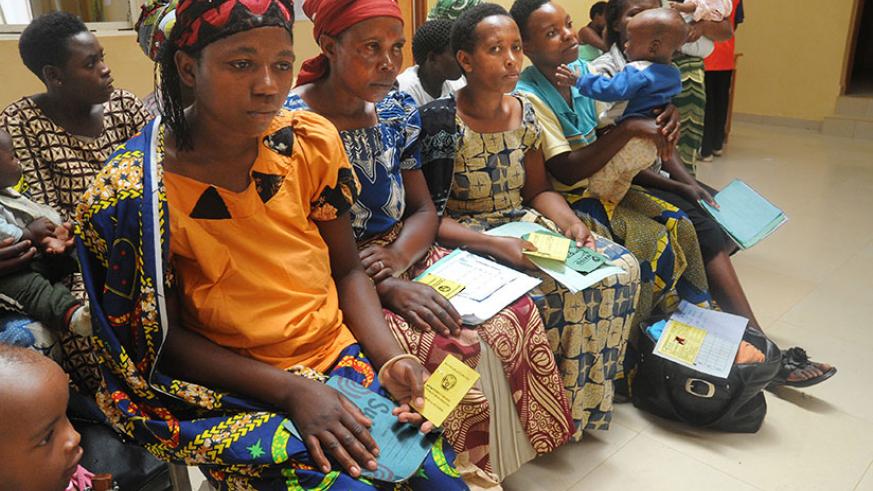

The current legal framework on abortion provides that a woman is allowed to terminate a pregnancy of up to 22 weeks under conditions, such as pregnancy being a result of rape, forced marriage, incest, when the pregnant person is a minor or if the health of the mother or baby are at risk.
The current law determining offences and penalties goes further to facilitate women to obtain medical abortion upon the authorisation of a medical doctor, and not through a decision granted by the court as it was previously.
Both have been huge steps towards securing women’s reproductive rights and curbing consequences such as infertility and maternal mortality, which can happen as a result of illegal abortion services.
However, regardless of the milestones taken so far, predicaments for potential service users still prevail.
Take Marie-Claire (not real name), a resident of Bugesera District. When she was raped earlier last year, her offender did more than violate her sexually. This awful incident left her devastated, but as she was nursing her wounds, she later discovered she was pregnant too.
A single mother of three children, life was already hard as it was and now she was caught in a predicament that wasn’t her choosing whatsoever.
"I was impregnated by the man who raped me; this happened last year in May. I didn’t want to give birth given the circumstances in which I had conceived. Luckily, I had contacts with Health Development Initiative (HDI). I contacted them and shared my plight with them. They oriented me on how to go about seeking safe abortion services. However, though I was obliged to seek these services, the process of attaining them was very complicated for me,” she narrates.
Her main challenge was accessing these services using Mutuelle de Santé, the annual community-based health insurance scheme, which she uses.
According to the current ministerial order on abortion, safe abortion services can only be procured at hospitals. The downside of this is that patients using Mutuelle de Santé can only access hospitals if they are granted a transfer from health centres. Health centres, on the other hand, cannot give a transfer, since the first level of access for services is at the hospital.
And even though Marie-Claire was finally able to access the services with the help of HDI, her experience shows the limitations women still face in accessing safe abortion services even when they are obliged to get them.
Dr. Aflodis Kagaba, Executive Director of HDI, says that Rwanda is lucky to have had this progress within the legal framework, something he says has been able to reduce the number of unsafe abortions.
He says that the awareness that has been done in terms of availing safe abortion services is now yielding results, noting that they are starting to see health care providers who are willing to provide safe abortion services and are currently doing so.
"Women also are being informed about the services," he said. "Last year, at HDI alone, we saw over 400 women requesting for information on safe abortion and how they can access them. Others were seeking support in terms of legal aid.”
He however highlights that when the law determining penalties and offenses and the ministerial order on abortion were put in place, a limitation was set up allowing only doctors to offer safe abortion services.
"The challenge is with women who cannot afford to pay for the services themselves and use Mutuelle de Santé. They find it hard to access the services. Health centers cannot provide safe abortion because their main staff are nurses and midwives. We don’t have doctors at the health centre level, which means women can only access doctors at the hospital level."
This, he says, is an issue that needs advocacy. "Though we have been paying for the service for some of the women, it’s quite expensive. We need to see how these barriers can be addressed,” he says.
Information from Rwanda Social Security Board, which is the administrator of Mutuelle de Sante, however, points towards optimism for victims of Gender-Based Violence seeking the services.
In a statement in reference to the request made by the Ministry of Health for the reimbursement of health services provided to GBV victims by health insurance, Regis Rugemanshuro, Director General of RSSB, highlights that health services provided to GBV victims insured with Community-Based Health Insurance (Mutuelle de Santé) will be covered by their insurance (CBHI).
GBV victims are to be received at the hospital level as emergency cases, without being requested to present referral notes from health centres. In theory, this policy has been in effect since July last year.
Dr. Kagaba however stresses that a focus on GBV victims may overshadow the main problem, which is accessing safe abortion services without referral.
"Someone may request safe abortion due to incest. It would be good if RSSB could issue a directive to all hospital directors waiving referral requirements in case of safe abortion services since the first level of access is the hospital.”
Christopher Sengoga, the head of Human Rights and Litigation at HDI says that it seems some institutions and individuals are confusing access to safe abortion under the conditions of "rape” with other cases.
"They think all cases of women that seek abortion are a result of rape. Abortion is allowed in situations beyond rape cases as well, such as incest among adult women or children, or a child engaged in consensual sexual relationship with a fellow child without force. This does not fall under GBV,” he says.
He adds that using mutuelle is also associated with other challenges; upon requiring women to get a referral, they are obliged to first report the case to RIB for investigation then go through Isange One Stop Centre to record the case and refer them to hospital, this is when the case qualifies as GBV by Isange. This is done with a presumption that all abortion cases are GBV cases yet this is not necessarily the case.
According to RSSB however, Mutuelle de Santé only caters for services that are to be provided for in regards to the policies as outlined by the Ministry of Health. Alexis Rulisa, the head of CBHI Department at RSSB says RSSB is in constant discussion with health sector stakeholders, and particularly stakeholders in the reproductive health subsector. It is through those discussions that removal transfer note requirements for GBV victims was decided as a solution to remove barriers to accessing services. If transfer notes constitute a barrier to abortion services access, those issues will be discussed in that forum for consideration, he says.
Sengoga however reiterates that there is urgent need for RSSB and the Ministry of Health to issue a directive to all hospitals to ensure that women and girls seeking safe abortion services are not required to present referrals as stipulated in the ministerial order on abortion.


